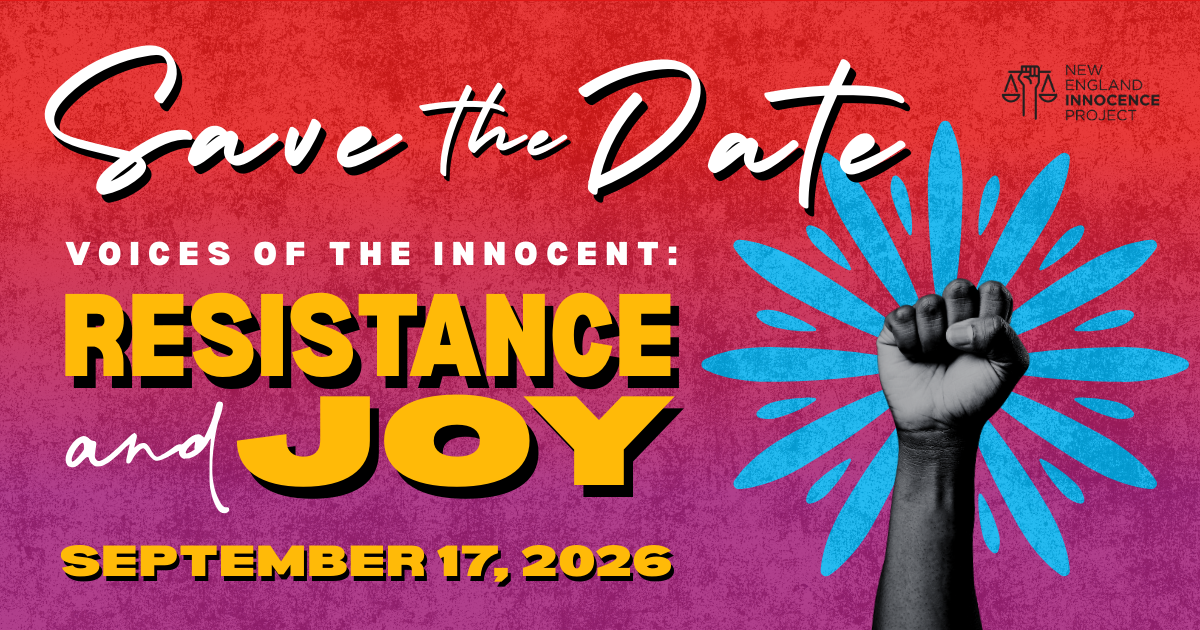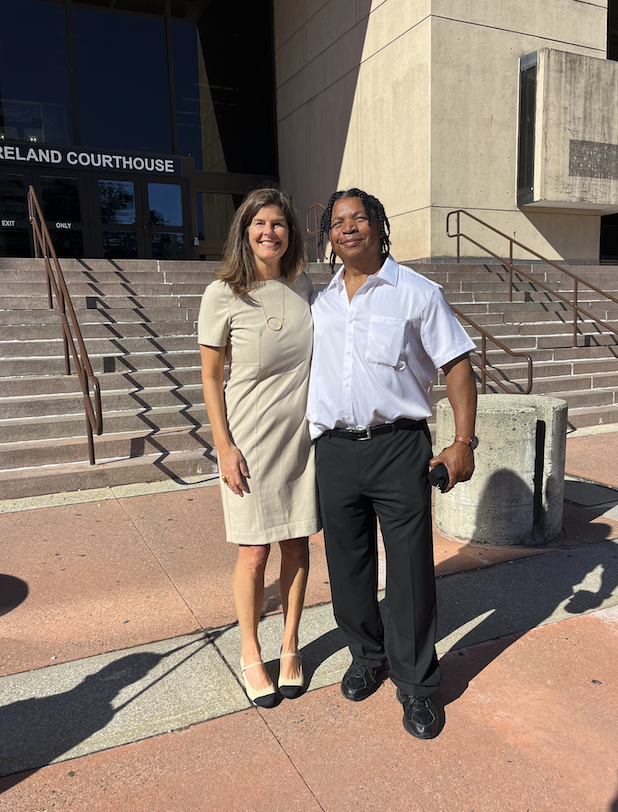Please join us for our annual storytelling event and fundraiser, Voices of the Innocent, on September 17 at City Winery Boston!
Read moreExoneree Network's 2025 Impact
We're excited to share just some of the Exoneree Network’s accomplishments in 2025. Thank you to everyone who helped us continue to build a thriving and safe community for our members!
Read moreJoin our Team! Seeking a Development Director
We’re looking for our next Development Director! Are you committed to fighting injustice and have a community-centric fundraising approach to development? Then, please join us! Applications are preferred by February 12, 2026.
Read moreSupporting Our Community in the Year Ahead
At the New England Innocence Project, we know that freedom is everything. And in moments like these, our commitment to showing up for one another only deepens. We recently spoke with Shar’Day Taylor, Exoneree Network Social Service Advocate, whose brother was wrongfully incarcerated for decades, about what the year ahead holds for our community.
Read moreExoneree Network Co-Hosts 3rd Annual Holiday Toy Drive
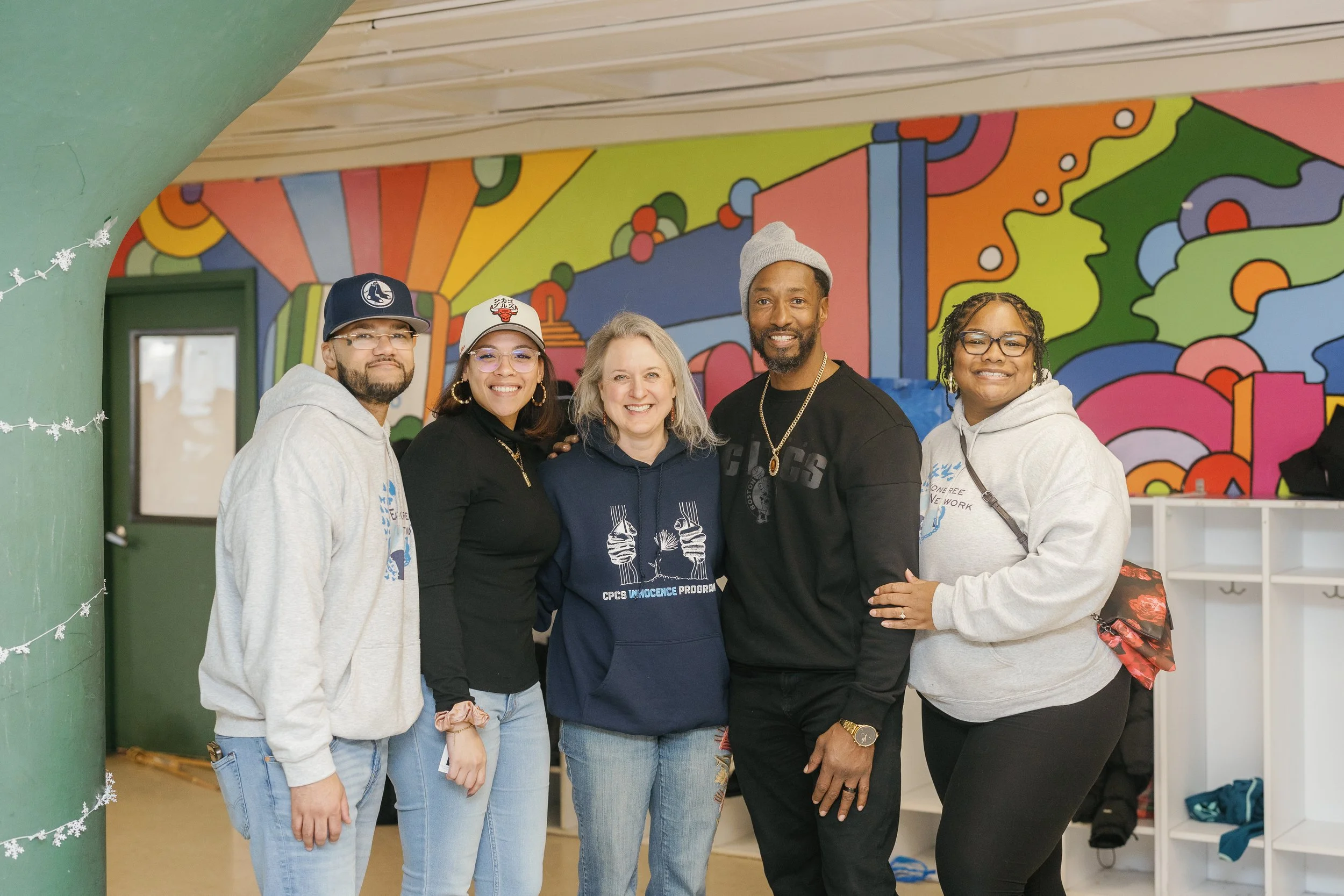
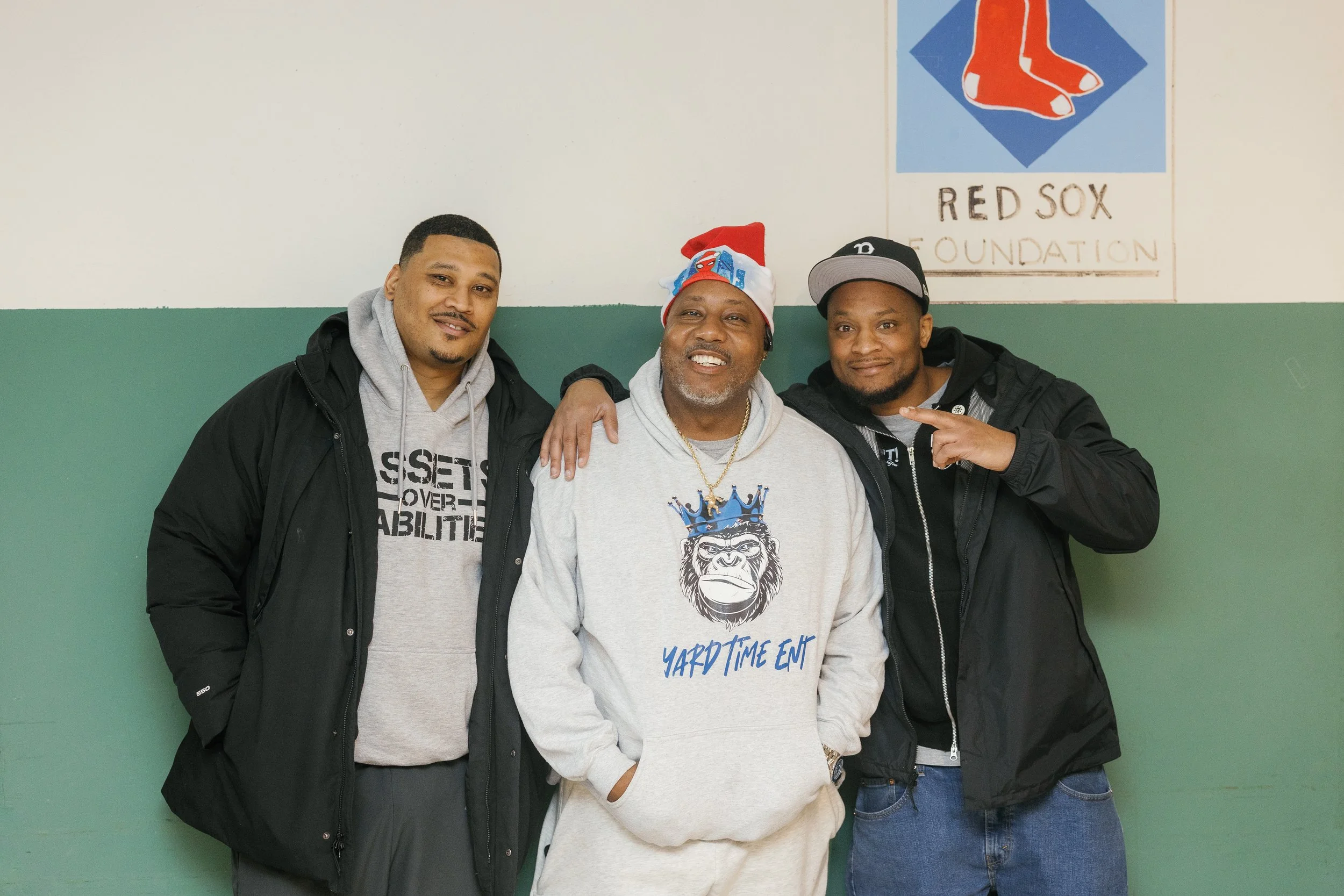


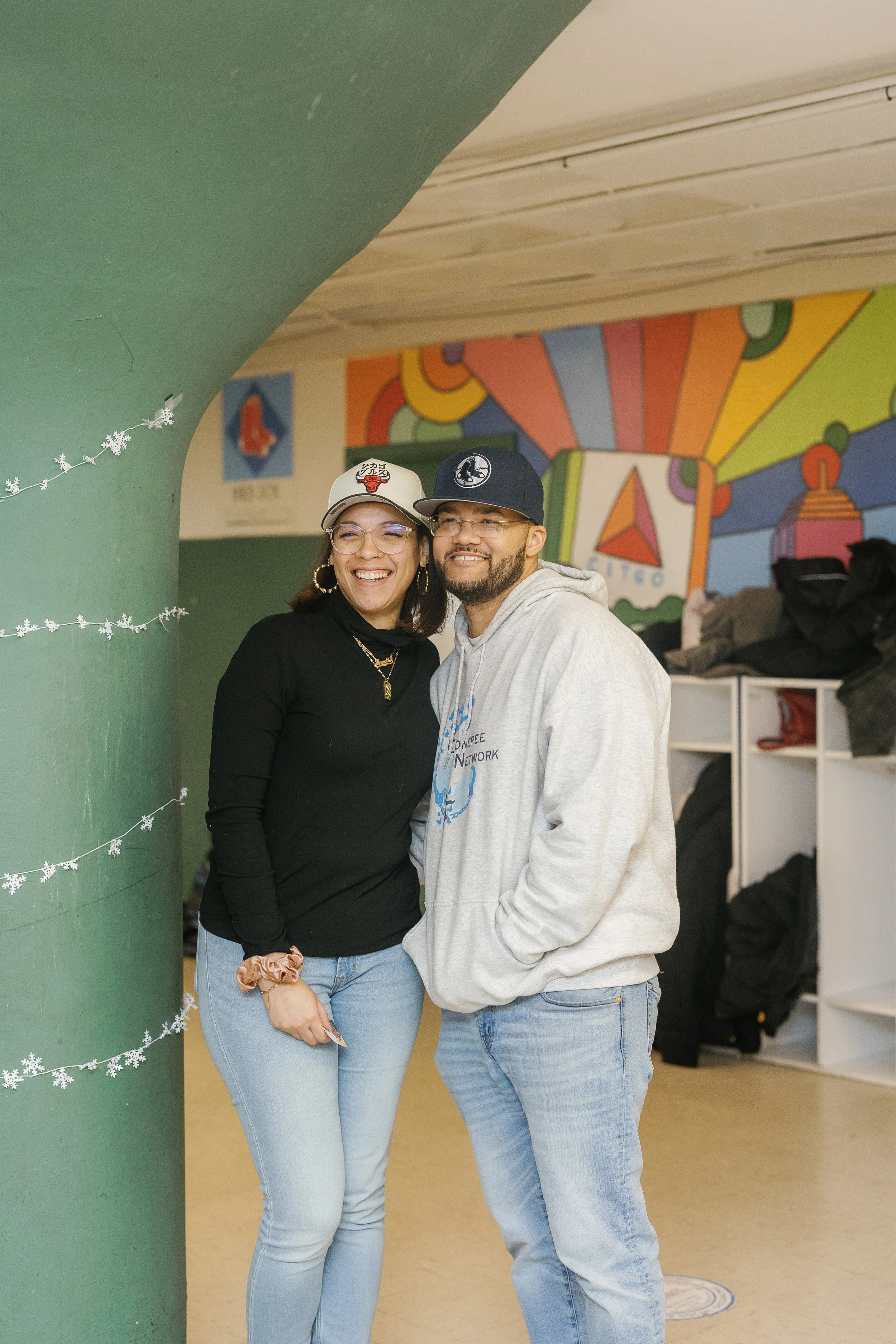
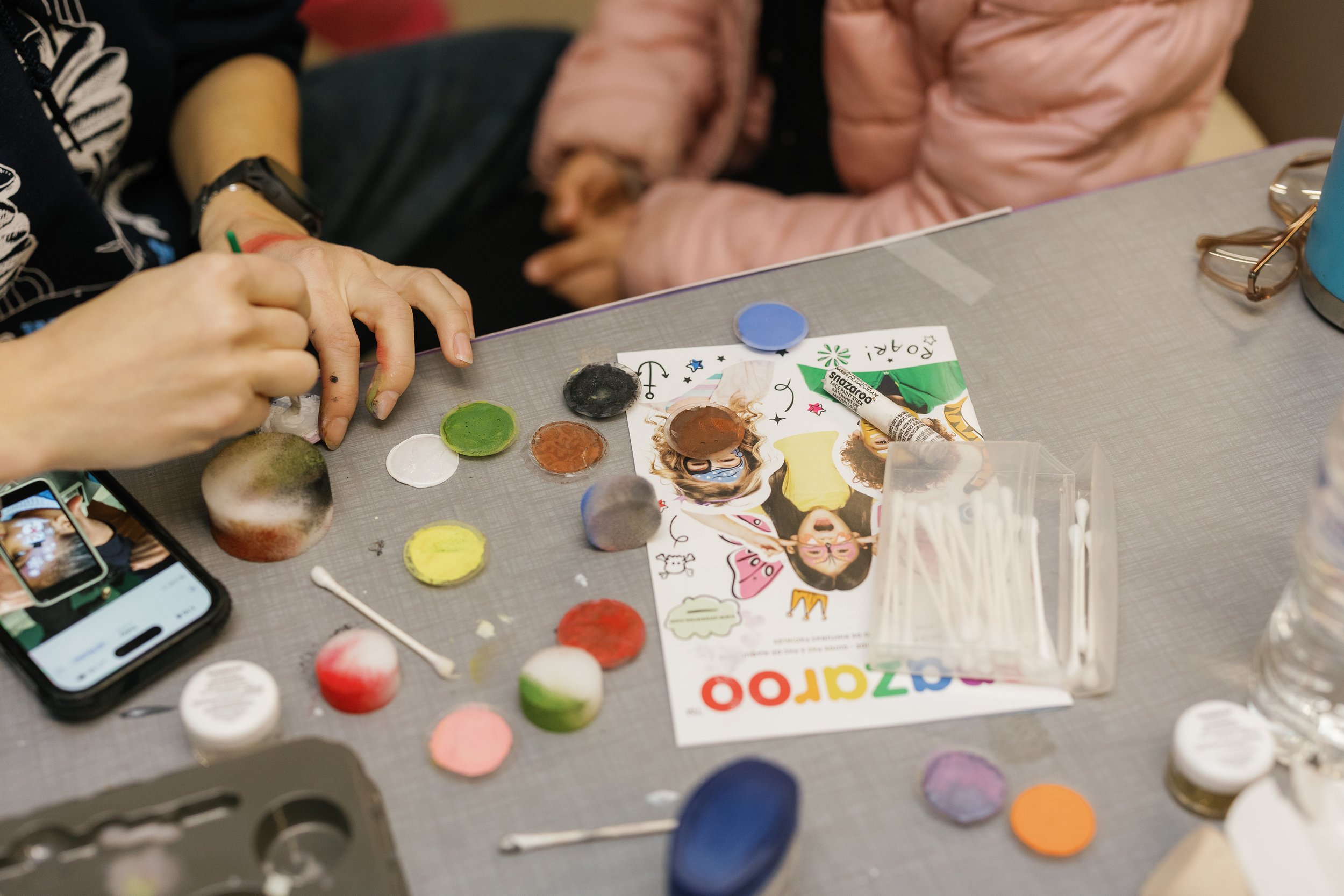
Thank you to everyone who contributed to our annual toy drive! We were able to make the holidays a little brighter for 93 Boston-area families, including 222 children impacted by long-term incarceration and wrongful convictions.
Read moreGift a Donation to NEIP
Give the gift of freedom and community with a donation to the New England Innocence Project made in the name of a friend or loved one who cares about social justice. We'll send them a special holiday-themed email with your gift letting them know that a donation has been made in their honor this holiday season.
Read morePursuing Truth for Shawn Tanner, As His Dying Wish
Shawn Tanner had a dying wish to have the evidence used to convict him of a 1988 murder in Dartmouth, MA, tested for DNA so he could clear his name. While initially the Bristol County DA’s office agreed to the testing and a Superior Court judge ordered it to be done in this case, when Shawn died of terminal brain cancer in 2022, the DA’s office fought to stop all testing and asked the Court to vacate their order, rather than allowing the truth to come to light.
Read moreMake Freedom Possible with a Year-End Gift
For every exoneration you hear about, there are hundreds of wrongfully convicted people still in prison you don't hear about. That's because so much of the work we do to pursue an exoneration happens behind the scenes. We currently have 107 active investigations, and with your support, these cases can become freedom stories too.
Read moreAn Extraordinary Friend: What Edward Wright has taught me
When Mimi Olivier messaged me online and told me her husband, Edward G. Wright, was serving life in prison for a crime he did not commit, I thought I was the victim of a phishing attack. I did not know then that this simple e-mail exchange would ignite a close friendship with Mr. Wright, or “Eddie”: a man with wildly different life circumstances from mine. And I certainly did not know that I would witness the day he would finally walk free.
Read moreHoliday Toy Drive: December 1 - 19
This holiday season, the Exoneree Network, a program of the New England Innocence Project, is partnering with YardTime to make the season brighter for the kids of those who have been impacted by the long-term incarceration of a parent or loved one.
Read moreView the Photos: Freedom Fall with our Community
This Freedom Fall, we’re uplifting the people and communities who are actively building a world beyond wrongful convictions—and beyond the systems that make them possible. The photos below capture moments from across New England where members of our community are standing with one another, organizing in the streets, fueling the fight against injustice, educating our communities, and demanding freedom.
These images honor the everyday work of liberation: the courage to imagine something better and the commitment to make it real. We’re grateful to stand alongside every person pictured—and every one of you—as we build a more just future together.




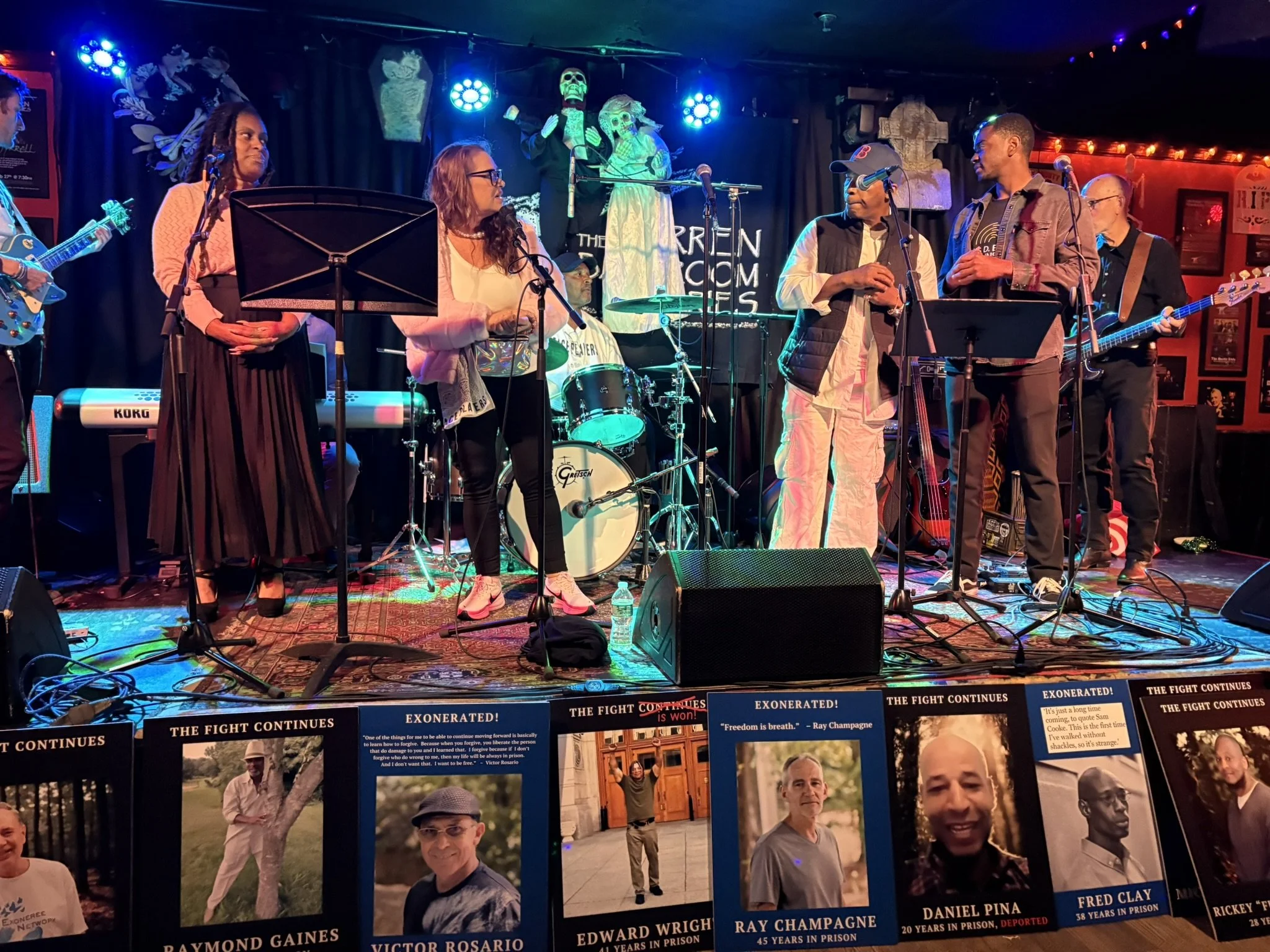






























Pictured: International Community Justice Association's annual conference; Running for Innocence and Jammin’ for Justice event photos; Wrongful Conviction Day press conference, march and rally; court support and celebrating freedom, and more.
Freedom to Celebrate
There has been so much to celebrate lately — three exonerations and another wrongful murder conviction overturned in just the last few months. Each case is a powerful reminder of why we fight every day for people who have been wrongfully convicted, and we are proud to have supported several of these cases through amicus work — an essential part of our mission.
Read moreBuilding Community with Second Chance Cars
We are excited to share that the Exoneree Network has launched a new partnership with Second Chance Cars, Inc., a Massachusetts-based nonprofit. Thanks to this collaboration, our community members will have the opportunity to obtain an affordable used car, thereby easing their access to employment and increasing their earnings.
Read moreAdvocating for elder and medical parole legislation
Among other things, the legislation would give people over 55 years of age the chance to seek parole after serving 15 years in prison and would improve the current medical parole process, which has failed sick and dying people. So many people in our community have been sentenced to die in prison, aging over decades with increased medical issues. With this legislation, they can have the chance to come home and receive the care they need and deserve.
Read moreJammin' for Justice, Oct 30
In the fifth annual Jammin’ for Justice event, a very special line-up of local musicians joins forces to support the work of the Exoneree Network and the Running for Innocence Fund, and to ensure that another inspiring group of people freed from Massachusetts prisons for crimes they did not commit will have the opportunity to attend the 2026 Innocence Network Conference in Chicago.
Read moreRunning for Innocence, Nov 2
Please join us for the 11th anniversary of the Running for Innocence team’s participation in the Genesis HR Battlegreen 5K/10K on Sunday, November 2, 2025. We’re aiming to raise $11,000 from registration fees and donations for the New England Innocence Project‘s Running for Innocence Fund, which helps all three innocence organizations in Massachusetts pay for experts and investigators needed to free innocent people behind bars for crimes they didn’t commit.
Read moreHonoring Wrongful Conviction Day
We were hard at work this Wrongful Conviction Day, a day to shine a light on the causes and devastating impacts of wrongful convictions. It is a day to celebrate the sweetness and joy of long-overdue freedom, but also a day to remember and stand with the many people, both inside and outside the prison walls, who continue to fight for freedom, truth, and justice.
Read moreHonoring Wrongful Conviction Day & Freedom Fall
On October 1, we will be hosting a press conference at the Massachusetts State House to share the lessons learned from Massachusetts’ most recent exoneration, followed by a march and rally to City Hall in commemoration of Wrongful Conviction Day, an international day of awareness dedicated to highlighting the causes, remedies, and emotional tolls of wrongful conviction.
Read moreEdward Wright Exonerated!
Edward Wright Exonerated After 41 Years In Prison for a
1984 Springfield Murder He Did Not Commit
Hampden County District Attorney’s Office Ends the Prosecution of Mr. Wright
Edward Wright (right) and Stephanie Hartung, Senior Staff Attorney for the New England Innocence Project, at the Courthouse after Mr. Wright had his ankle monitor removed on August 22, 2025.
The New England Innocence Project announces today that its client, Edward Wright, has been exonerated after being wrongfully convicted and incarcerated for more than 41 years for a Springfield murder he did not commit. Mr. Wright’s conviction was vacated in April based on findings of police and prosecutorial misconduct, including withholding evidence and presenting false testimony. Last month, Hampden County Superior Court Judge Sarah Hamilton released Mr. Wright on his own recognizance with conditions of release. At the time, the Commonwealth asked for additional time to decide whether it would retry the case. Today, the Commonwealth filed a Nolle Prosequi, ending the prosecution of Mr. Wright for the murder of Penny Anderson.
Over the last 41 years, Mr. Wright always maintained his innocence and never stopped fighting to overturn his wrongful conviction. He has spent decades presenting new evidence in support of his innocence and the Commonwealth’s misconduct, including powerful evidence pointing to a third-party culprit, along with DNA and forensic evidence – all information that was not presented to the jurors in the original 1985 trial.
Although Mr. Wright was released last month, his freedom was not absolute. He was released from prison subject to conditions that included significant restrictions on his freedom, such as an ankle monitor and a strict curfew. He’s been unable to travel out of state to visit his family or to celebrate with his friends and legal team beyond 8:00 p.m. Now, with the Commonwealth’s decision to end the case, all restrictions have been lifted, and Mr. Wright is finally, truly free.
In its decision to end the case against Mr. Wright, the Commonwealth did not acknowledge that its own agents hid and lied about evidence for decades. Despite Judge Bucci’s explicit findings of misconduct by the Commonwealth, the Hampden County District Attorney’s Office has refused to recognize or take responsibility for their actions that led to Mr. Wright’s wrongful conviction and prolonged incarceration for over 40 years.
“It is unfortunately part of a familiar old playbook that when faced with uncontrovertible evidence of its own misconduct, the Commonwealth buries its head in the sand,” said Stephanie Roberts Hartung, Mr. Wright’s attorney from the New England Innocence Project. “Rather than acknowledging that false testimony and hidden evidence led to the wrongful conviction of an innocent man, the prosecution instead clings to a blind insistence on his guilt. We are thrilled that Eddie is finally free, but we cannot call it justice when it took him 41 years to get here.”
“The Hampden District Attorney’s Office falsely equates justice for Penny Anderson, the murder victim, with a conviction–any conviction. Edward Wright was Penny Anderson’s friend, and his conviction has never meant justice. Instead, this wrongful conviction has led only to prolonged devastation for two families, two communities, and our entire legal system. This exoneration should be a wake-up call to examine the criminal legal system in Massachusetts,” said Radha Natarajan, one of Mr. Wright’s attorneys with the New England Innocence Project.
“I am overjoyed that Eddie, my friend, can begin to move past this horrific ordeal. I hope the Commonwealth does not move past it so quickly and instead takes a hard look at the failure of its justice system that caused an innocent man to be wrongfully imprisoned for more than 41 years,” said Nigel Tamton, a member of Mr. Wright’s legal team.
Additional Case Background
Mr. Wright was wrongfully convicted of the 1984 murder of his friend, Penny Anderson, in her Springfield, Massachusetts, apartment. In overturning Mr. Wright’s wrongful conviction in April, Hampden County Superior Court Judge Jeremy Bucci found that the prosecution knowingly and intentionally withheld “significant” exculpatory evidence of a break-in to the crime scene and that a detective gave “blatantly false testimony” at trial concerning “evidence central to the prosecution’s case”. He went on to note that the withheld information affected the “only forensic evidence tying [Mr. Wright] to the blood in the apartment.” The Commonwealth’s appeal of this decision was summarily denied earlier this month by Supreme Judicial Court Justice Serge Georges.
Next Steps
The New England Innocence Project has represented Mr. Wright for 10 years in the pursuit of his exoneration. Since his release on July 31, Mr. Wright has been reunited with his wife and has begun to heal and rebuild after 41 years in prison. He and his family have also begun receiving support services through the Exoneree Network, a program of the New England Innocence Project, and were met with a warm welcome from this incredible community. His ankle monitor will be removed tomorrow, August 22, at 9 a.m. at the Hampden County Superior Court in Springfield.
About Mr. Wright
Since his release last month, Mr. Wright has savored every moment of his freedom. He has reunited with friends, families, and supporters who stood by him for decades. He has a new fishing rod and caught his first fish in the Mystic River in Medford. It was too small to keep, but that didn’t diminish the thrill. He is slowly getting used to a world that looks entirely different from the one he left in 1984 when he was arrested at age 22.
Isaac Saidel-Goley, a pro bono attorney from Mr. Wright’s legal team adds, “For half a lifetime, the Commonwealth tried to write Eddie’s story for him — inked with poison, each page blotted in deceit. Today, Eddie pens his own ending — vindicated, injustice burned clean by truth.”
ADDITIONAL BLOG POSTS ABOUT EDWARD WRIGHT:
Edward Wright is Free After 41 Years!
Court Overturns 1985 Springfield Murder Conviction
New DNA Testing Demonstrates Man Was Wrongfully Convicted of 1984 Murder
On Wrongful Conviction Day 2023, Lawyers File Motion for New Trial for Edward Wright, Who Has Served 39 Years in Prison for a Murder He Did Not Commit
An Extraordinary Friend: What Edward Wright has taught me
Edward Wright is Free After 41 Years
On July 31, Edward Wright was freed from prison and reunited with his family after being wrongfully incarcerated for more than 41 years. Mr. Wright’s conviction was vacated in April based on findings of police and prosecutorial misconduct. However, his fight for exoneration is not yet over. Rather than dropping the charges against Mr. Wright, the Commonwealth may still decide to retry the case.
Read more
